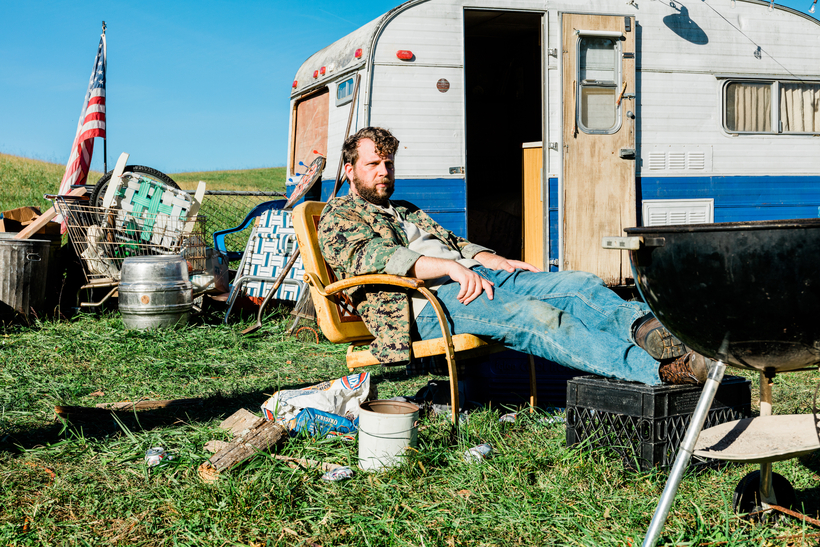The theatrical cantata Soldier Songs, words and music by David T. Little, has been circulating since 2006. In its searing 60-minute arc, the nameless protagonist in a cast of one moves from boyhood war games to shock and awe under fire, and finally to the PTSD-haunted aftermath back home. Reviewing the recording released in 2013, Chuck N. Baker of Veterans Reporter News had this to say: “Music has been turned upside down, just as war turns the world inside out. In my opinion, this CD may only be deeply understood by veterans of the current Middle East wars. I suggest they listen to it on a bright Sunday morning.” Little’s references—based on interviews with combat veterans—are actually to Vietnam, but no matter. The Soldier here is at once a living person and a symbol.
“Music has been turned upside down, just as war turns the world inside out.”
In response to the pandemic, Opera Philadelphia has launched an ambitious streaming channel, dominated by fresh content. Here you will find a new movie of Soldier Songs starring and directed by the baritone Johnathan McCullough. In another eye-catching credit, the director James Darrah, one of American opera’s leading innovators, appears as screenwriter and producer.
Here, McCullough takes questions about his gripping tour de force.
Matthew Gurewitsch: Unlike a lot of material we’re seeing online these days, this movie you’ve made really is a movie, not just a documentary based on a conventional stage production. Have you directed film before, or have you reinvented yourself in the pandemic?
JoHnathan McCullough: I’ve always had a love for movies and an interest in the making of them. As a kid growing up in L.A., I would often visit Universal Studios Hollywood, which I absolutely loved. I’ve always had a desire to make movies but never the opportunity, so I was thrilled to finally have the chance to make this.

M.G.: Your role is classified as baritone, but the range is way wider than the label suggests. Did it take you out of your classical comfort zone?
J.M.: The piece goes from a low F to a B below high C. I stick to the bel canto technique throughout but graft on different styles depending on the song. The first song imitates a child’s voice and goes quite high, so I used a bit of brash falsetto there. Other songs have different modern twists, but in the end, everything comes back to the classical bel canto technique.
M.G.: I’m remembering a line that goes something like this: “You’d have to see it to believe it, and I don’t think you’d want to see it.” There’s also a lot in the piece about the reluctance of vets to speak of their experience except with other vets. Are you a vet yourself, or did you talk to vets as part of your research?
J.M.: I am not a veteran myself, but my grandfather was and would tell me stories of his time overseas. My fiancé is a psychiatrist and often works with veterans, which got me interested in telling the story this way. It’s estimated that 17 American veterans die by suicide every day. Initially, I wasn’t aware of the lasting impacts of PTSD, so my hope in telling this is to shine some light and help initiate some change for the better.
Soldier Songs is available for streaming until May 31
Matthew Gurewitsch writes about opera and classical music for AIR MAIL. He lives in Hawaii

